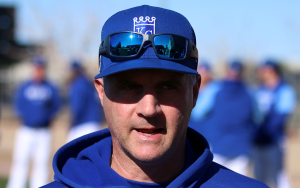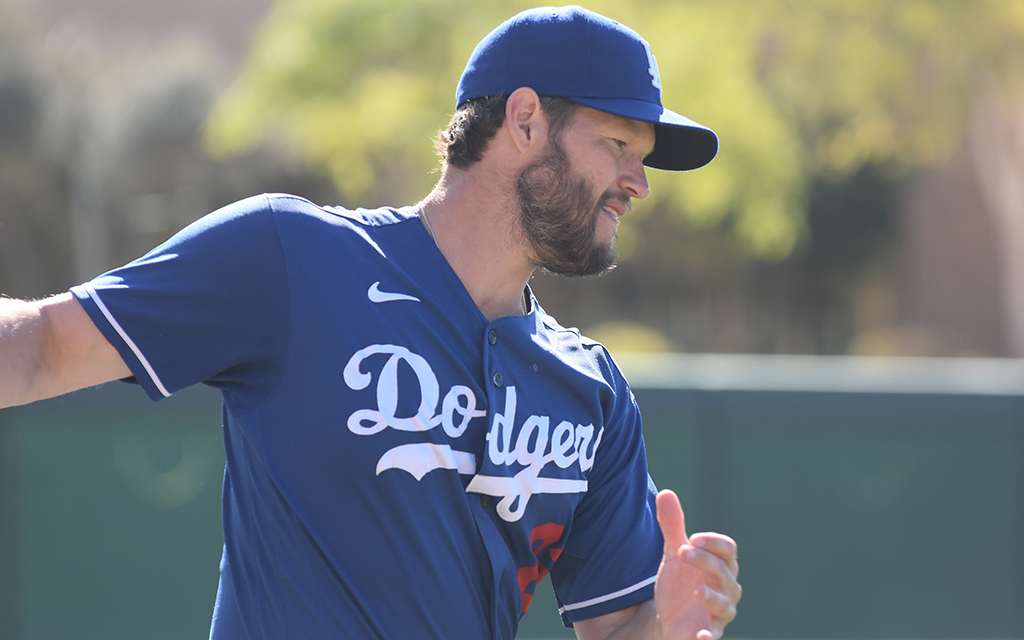PHOENIX – The most polarizing topic by far throughout spring training was the rule changes for the 2023 season.
The massive changes have forced fan bases to take a side on issues that aren’t necessarily black and white. The most glaring rule change is the pitch clock and the handcuffs it puts on pitchers with limited time and mound disengagements.
With limited disengagements, pick-off attempts will be affected. At times in the past, a pitcher would throw over to first base without any limits. Under the new rules, pitchers can only disengage with the rubber twice per at-bat. This, in conjunction with limited time due to the 15- or 20-second pitch clock, creates a recipe for problems.
Theoretically, once the pitcher has picked over twice, the runner has a green light to steal without hesitation. The limited time also makes the pitcher’s timing more predictable.
Talks between the league and teams about how the rules would be enforced began once the rule changes were finalized and implemented during spring training. Milwaukee Brewers manager Craig Counsell detailed exactly what was being discussed behind closed doors.
“It’s something where you have to study. We’ve asked questions of Major League Baseball about this one, because this is one where you can ask somebody what the rules are, but then the rules still say umpire judgment,” Counsell said. “So it’s really going to be a conversation with the umpire at the time of it happening in the end. Our job is to make sure of the rule book violations.”
Counsell had hoped umpires would not hesitate to call violations during spring training to prepare teams for the regular season when games count in the win-loss column.
One of Counsell’s longest-tenured players, starting pitcher Wade Miley, has been in the big leagues since 2011. Miley isn’t a fan of the pitch clock but trusts the word of minor leaguers who enjoyed playing under the updated rules last season.
He even thinks some teams could get creative when finding ways to bend them.

Kansas City Royals manager Matt Quatraro pulled back the curtain on his team’s plans to take advantage of the new pitch clock this season. (Photo by Dylan Nichols/Cronkite News)
“I definitely think it’s going to take some adjusting to get used to,” Miley said. “Teams are gonna try to find ways to use all these roles as some sort of advantage somehow, and I think there’s ways to do it.”
Miley’s suspicions were confirmed by Kansas City Royals manager Matt Quatraro, who shined light on how his ballclub plans to take advantage with the pitch clock.
“We’ve talked about different ways to take advantage of it,” Quatraro said. “We have talked about one instance where if we have a guy on second and third, and for some reason they disengage, maybe the guy on second tries to force another one just to have him have only one left.”
Chicago Cubs manager David Ross held similar talks with his team over in Mesa during camp.
“Holding runners has been an emphasis for us,” Ross said. “How many disengagements, if you pick a guy off, and there’s a guy on first and third, that’s actually a disengagement even if you get him out and have two left before it is a balk. So little things like that, just making sure everybody understands what the parameters we’re working between.”
The tone was quite different over at Dodgers camp in Glendale.
Walker Buehler, who will likely miss the entirety of the 2023 season while recovering from Tommy John surgery, believes the rules won’t be a major factor when he returns to the mound.
“It’s more of the timing of it than anything. Once you come set, I think it’ll be pretty similar,” Buehler said. “Watching games I didn’t mind it. … Obviously guys are gonna have to adjust, but should be fine.”
Similarly to Miley, another veteran who will need to change their ways after a long tenure in the big leagues so far is Clayton Kershaw.
The Dodgers lefty made four starts this spring, getting a good chunk of game time to dial in his new ways. He got into situations involving baserunners, which Kershaw said he didn’t feel was an issue with the new rules.
“I think I’m fast enough to the plate to where it won’t matter,” Kershaw said. “I had (Myles) Straw over there for a number of pitches, and I don’t know if he’s not running this year, but that would definitely be sometimes that he would have run and he didn’t.”
While teams and fans remain split on the pitch clock, the time for debate is over as Opening Day has arrived. Now fans will see the work their favorite teams have put in and take in the new, creative ways baseball will be played going forward.


